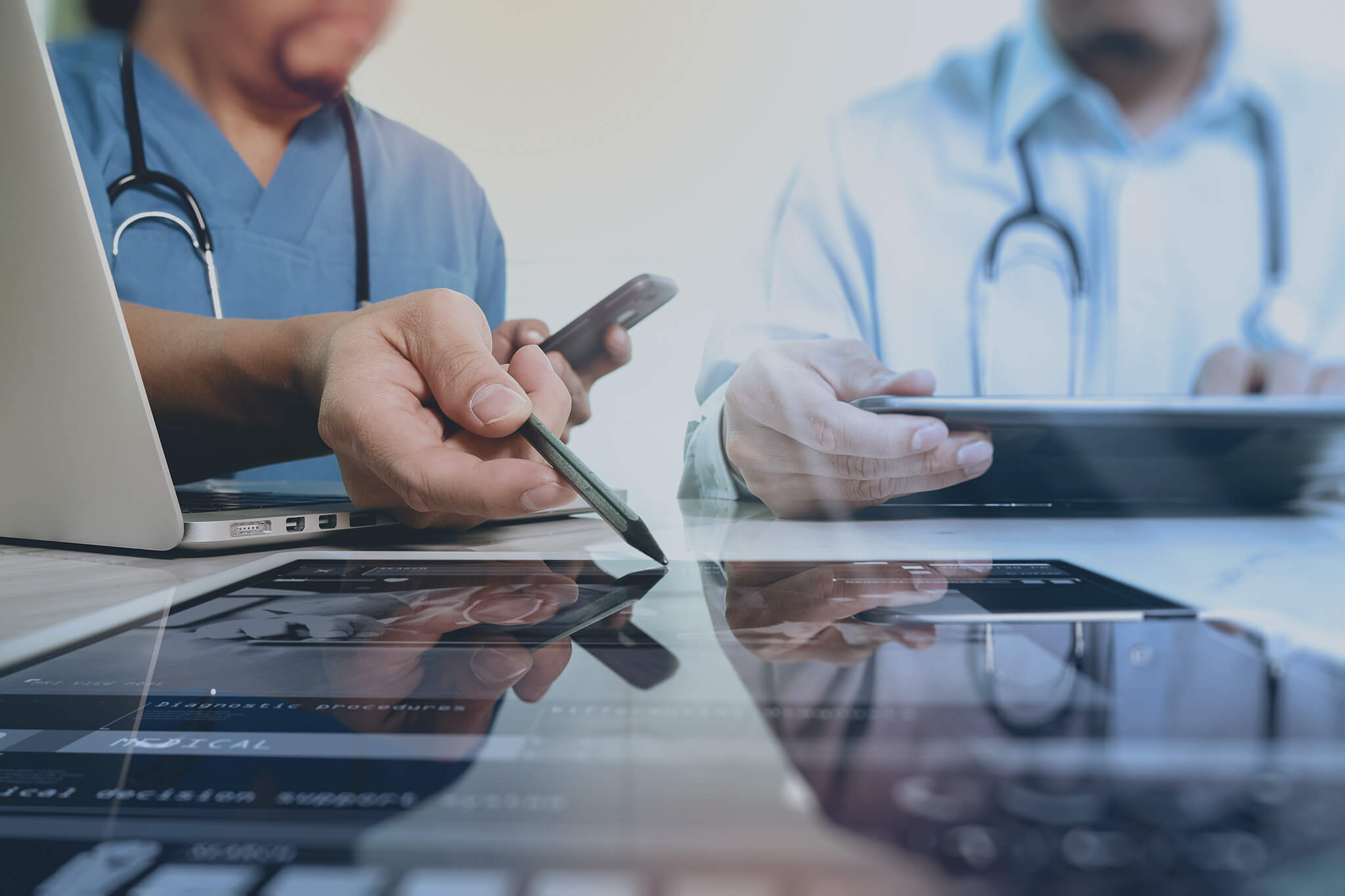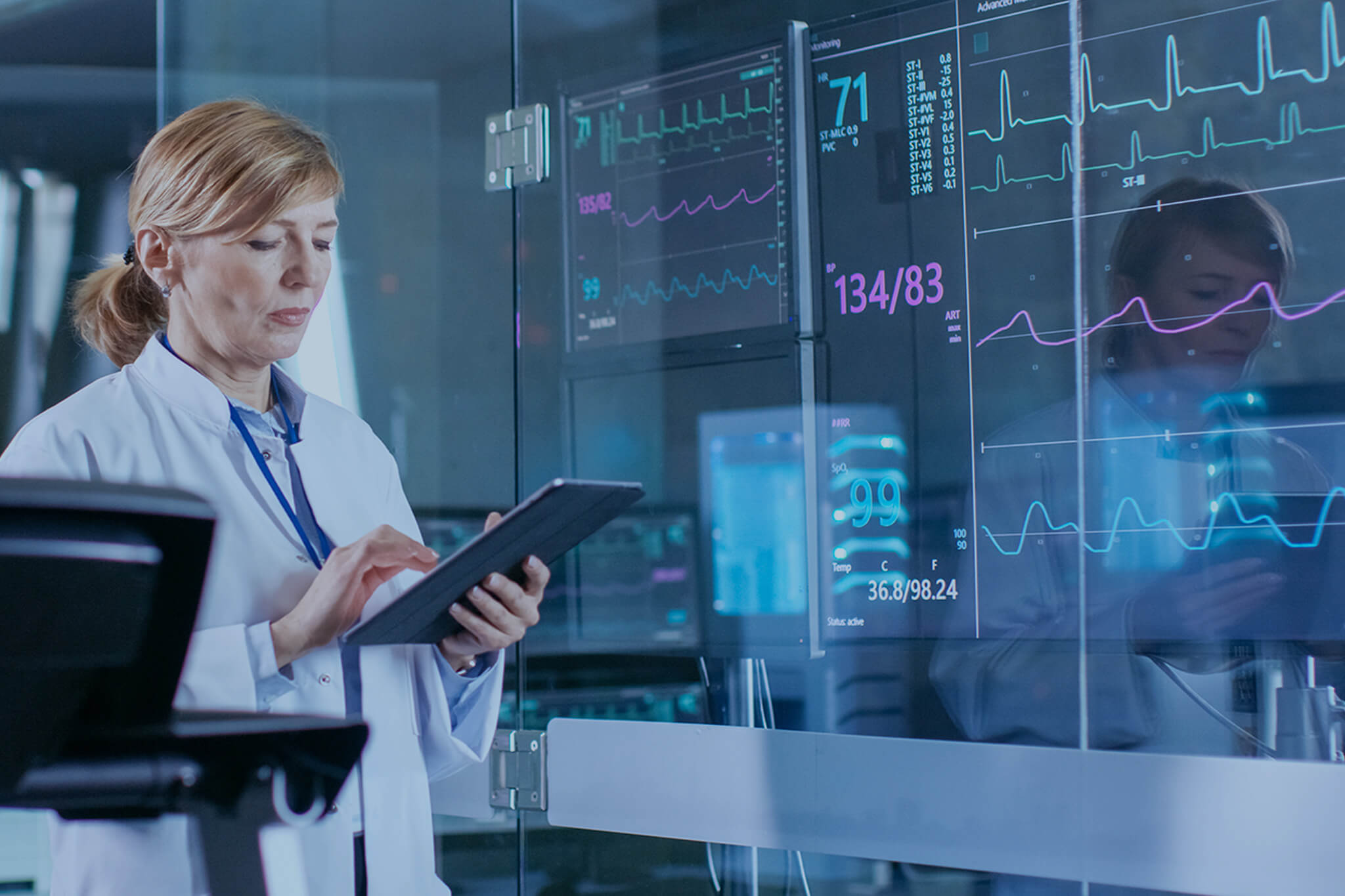The Latest Medical Technology Used in Hospitals Today
In recent years, advancements in artificial intelligence (AI), machine learning (ML), and interconnected systems have amplified the impact of medical technology used in hospitals. These technologies allow hospitals to process vast amounts of data in real time, make smarter decisions, and bridge gaps in care for underserved populations. Whether it’s a rural patient consulting a specialist through telehealth or wearable devices monitoring chronic conditions at home, medical technology is breaking down barriers to ensure better health outcomes for all.
This article explores the profound ways new medical technology is being used in hospitals today. From enhancing diagnostics to improving surgical precision and empowering patient engagement, we’ll delve into how these innovations are shaping the future of healthcare — and why they’re essential for hospitals striving to meet the challenges of today and tomorrow.

The Role of Medical Technology in Modern Hospitals
Medical devices have always been a cornerstone of healthcare, but their evolving role is now driving a paradigm shift in hospital operations. These new innovations are no longer just tools used for patient care — they are integral components of a hospital’s ecosystem, enabling data-driven decisions, personalized treatments, and streamlined workflows. From diagnostics to resource management, medical technology is transforming the way hospitals deliver care.
Revolutionizing Hospital Operations and Patient Care
New Medical technologies are revolutionizing hospital operations by enabling superior patient care, enhanced efficiency, and significant cost reductions. Tools such as advanced diagnostic imaging systems, wearable health monitors, and telemedicine platforms are not only improving hospital workflows but also increasing precision and facilitating more patient-centered healthcare delivery.
The integration of artificial intelligence (AI) and machine learning (ML) has amplified these advancements, enabling hospitals to analyze vast amounts of patient data in real time. For instance, AI-powered algorithms can detect anomalies in diagnostic images faster than human interpretation, allowing for earlier intervention and better outcomes. Wearable devices, integrated with IoT (internet of things) systems, ensure that patient data is continuously monitored, creating a seamless flow of critical information between patients and providers.
Beyond Tools: Medical Devices as Catalysts for Change
Modern medical devices have evolved into transformative technologies, acting as catalysts for systemic change in hospitals. Interconnected systems now enable seamless communication between departments, making workflows more efficient and patient care more cohesive. Examples include:
- Automated medication dispensing systems: These reduce human error and ensure patients receive the correct dosage every time.
- Remote monitoring technologies: These allow healthcare providers to diagnose and manage chronic conditions like diabetes or hypertension from afar, reducing hospital admissions.
- EHR integrations: Devices that automatically update electronic health records (EHRs) save time and minimize the risk of transcription errors.
These innovations not only enhance operational efficiency but also ensure that healthcare professionals have the tools to provide timely, accurate care.

Improving Accessibility and Equity in Healthcare
Perhaps one of the most transformative aspects of modern medical technology is its ability to improve access to care for underserved and rural populations. Telemedicine platforms, supported by high-quality medical devices, enable patients to consult with specialists from anywhere in the world. Portable diagnostic tools bring testing capabilities directly to patients, eliminating the need for expensive or time-consuming travel.
For example:
- Telehealth advancements: Virtual consultations have surged, allowing rural patients to access care that would otherwise be unavailable.
- Portable devices: Handheld ultrasound machines or blood testing kits bring hospital-grade diagnostic capabilities to remote areas.
- Home-based care: Devices like wearable ECG monitors ensure that patients with chronic conditions can be monitored without frequent hospital visits.
By bridging gaps in access, these technologies are playing a vital role in making healthcare more equitable and inclusive.
Reimagining Healthcare for the 21st Century
The impact of medical technology extends far beyond patient care, transforming hospital administration and resource management. Smart inventory systems now ensure critical supplies are always available, while predictive analytics help hospitals optimize staff deployment and manage patient flows more efficiently.
Additionally, robotics and automation are taking on routine tasks such as disinfection, delivery of medical supplies, and even surgical assistance, freeing up healthcare professionals to focus on patient-centered care. These innovations are enabling hospitals to not only improve existing processes but also reimagine their role in delivering healthcare for a digital, data-driven age.
A Holistic Transformation
The integration of advanced medical devices and technologies represents a holistic transformation of healthcare. Hospitals are no longer just diagnosis and treatment centers; they are becoming hubs of innovation, accessibility, and patient empowerment. By embracing these advancements, the healthcare industry is paving the way for a future that is more efficient, equitable, and tailored to the unique needs of every individual.

Seven Ways Medical Technology Used in Hospitals Today
We explore the tangible impact of medical technology used in hospitals, highlighting seven key ways these new advancements are reshaping healthcare delivery, improving patient outcomes, and enhancing operational efficiency.
1. Enhanced Diagnostics and Precision
Advanced medical technologies, such as MRI, CT scanners, and next-generation diagnostic devices, are improving diagnostic accuracy and efficiency. Innovations like AI-powered imaging and molecular diagnostics allow for earlier detection and tailored treatment plans, improving patient outcomes. For example:
- AI in imaging: AI algorithms detect anomalies in imaging scans faster than traditional methods, enhancing diagnostic services and medical staff confidence.
- Genomic integration: Devices combining diagnostic imaging with genomic data enable personalized medicine, improving treatment effectiveness.
These advancements not only help identify conditions earlier but also pave the way for more precise, targeted interventions, ultimately reducing treatment times and improving long-term patient health outcomes.
2. Remote Patient Monitoring and Decentralized Care
Wearable devices and IoT-enabled technologies are revolutionizing chronic disease management by shifting care to patients’ homes. Key benefits include:
- Chronic disease management: Devices for monitoring blood glucose levels, heart rhythms, and blood pressure provide real-time insights.
- Cost reduction: Remote monitoring decreases hospital readmissions by allowing proactive interventions.
A systematic review published in BMJ Open concluded that remote patient monitoring can reduce acute care use for patients with cardiovascular disease and chronic obstructive pulmonary disease. By enabling continuous monitoring and timely interventions, remote patient monitoring not only enhances patient convenience but also fosters a more proactive approach to healthcare, supports hospital efficiency by alleviating the burden on resources, and reduces the need for unnecessary in-person visits, ultimately leading to better outcomes and improved quality of life.

3. Improved Surgical Precision with Cutting-Edge Tools
Robotic-assisted surgery systems and minimally invasive instruments are transforming surgical care, offering benefits such as:
- Reduced trauma: Smaller incisions mean faster recovery and lower infection risk.
- Enhanced precision: Robotic systems enable surgeons to perform complex procedures with greater accuracy.
Tools like DEKA’s DEKA SmartXide² TRIO CO₂ laser exemplify advancements in precision surgery. New Surgical laser innovations are not only transforming the surgical experience for patients but also empowering surgeons with greater control and confidence, ultimately driving better clinical services and outcomes to advance the standards of modern surgical care.
4. Streamlined Hospital Workflows and Operational Efficiency
Medical technology used in hospitals improves workflows by automating manual processes and integrating
with electronic health records (EHRs). Examples include:
- Automated data capture: Devices automatically upload patient vitals into EHRs, reducing human error and increasing diagnosis.
- Improved communication: Real-time sharing of patient data enhances interdisciplinary collaboration.
By optimizing these workflows, medical technology not only enhances day-to-day operations but also ensures that healthcare teams can dedicate more time to patient care, ultimately improving both efficiency and the quality of service delivery.
5. Empowering Patient-Centered Care
Patients are increasingly using technology to manage their health. Wearable health monitors and apps encourage active participation in healthcare. Features include:
- Health tracking: Devices measure sleep patterns, heart rate, and physical activity, fostering preventive care.
- Telemedicine growth: Platforms supported by medical devices enable virtual care through online consultations enhances accessibility.
By putting powerful tools directly into patients’ hands, these technologies foster greater engagement, improve health literacy, and create a more collaborative relationship between patients and healthcare providers, ultimately leading to better health outcomes and higher levels of patient satisfaction.

6. Predictive Analytics and Big Data Applications
Data from medical devices is enabling predictive analytics to improve hospital operations. Examples include:
- Device maintenance: Predictive tools forecast device failures, reducing downtime.
- Population health management: Analytics identify trends in patient data, informing resource allocation and preventive care strategies.
By leveraging predictive analytics and big data, hospitals can proactively address challenges, optimize resource management, and deliver more personalized and effective care, ultimately driving better outcomes for both patients and healthcare systems.
7. Cost Reduction Through Advanced Technology
Although medical technology can require significant initial investment, it can also offer long-term savings by improving efficiency and reducing complications. Benefits include:
- Shorter hospital stays: Minimally invasive procedures enable quicker recovery times.
- Preventive care: Early detection reduces the need for extensive, costly treatments.
By streamlining operations and focusing on early diagnosis and prevention, advanced medical technology not only reduces overall healthcare costs but also ensures that hospitals can provide higher-quality care while optimizing financial sustainability.
The Role of IML in Transforming Healthcare
Medical technology used in hospitals is transforming operational practices, creating a more efficient and patient-centric healthcare ecosystem. From enhancing diagnostics to enabling predictive analytics, these advancements are redefining the possibilities in modern healthcare.
IML is at the forefront of medical device distribution, helping healthcare institutions adopt advanced technologies. By providing cutting-edge devices like the DEKA SmartXide² TRIO, IML ensures hospitals stay ahead in delivering efficient, patient-centered care.
Why Partner with IML?
Partnering with IML connects you with a trusted team committed to your success in the competitive medical device market.
- Comprehensive support: IML offers training, technical support, and regulatory compliance guidance.
- Nationwide network: Access world-class devices through a trusted network of dealers across the U.S.
Interested in partnering with IML? Visit our Dealer page to learn more about joining our network and driving success in medical device sales.
